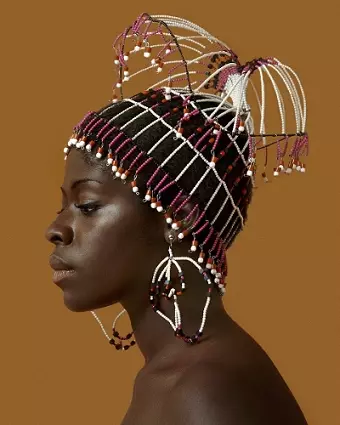Kwame Brathwaite: Black Is Beautiful
Deborah Willis author Tanisha C Ford author Kwame Brathwaite illustrator
Format:Hardback
Publisher:Aperture
Published:2nd May '19
Should be back in stock very soon

Powerful portraits from the 1960s “Black Is Beautiful” movement.
In the late 1950s and throughout the 1960s, Kwame Brathwaite used his photography to popularize the political slogan “Black Is Beautiful.” This monograph—the first ever dedicated to Brathwaite’s remarkable career—tells the story of a key, but under-recognized, figure of the second Harlem Renaissance.
Inspired by the writings of activist and black nationalist Marcus Garvey, Brathwaite, along with his older brother, Elombe Brath, founded the African Jazz Arts Society and Studios (AJASS) and the Grandassa Models (1962). AJASS was a collective of artists, playwrights, designers, and dancers; Grandassa Models was a modeling agency for black women, founded to challenge white beauty standards. From stunning studio portraits of the Grandassa Models to behind-the-scenes images of Harlem’s artistic community, including Max Roach, Abbey Lincoln, and Miles Davis, this book offers a long-overdue exploration of Brathwaite’s life and work.
“From Beyoncé to Barack Obama, it’s hard to think of a black figure who does not owe their prominence, in some measure, to the ethos of ‘Black is Beautiful’” —Ekow Eshun, Financial Times
"The Brooklyn-born photographer spent his career working to elevate natural black beauty during a time when the fashion industry was resistant." —the Guardian
“Together, the exhibition and the monograph are important footnotes to a slogan that has become both a state of mind and a revolutionary movement.” —Hyperallergic
“Through Brathwaite’s delicate and compassionate eye, the black female form, unadulterated in appearance, gave a new visual language that helped heal centuries-old white-supremacist wounds. The Grandassa models were an idealization of a black female utopia, which reinvigorated a limitless Africa that carried all the dialects, languages, accents, and subcultures within one womb. Brathwaite did not depict the black woman as what she could be, but as what she had always been, her beauty a constant and not something to be fixed.” —Morgan Jerkins, Artsy
ISBN: 9781597114431
Dimensions: unknown
Weight: 970g
144 pages